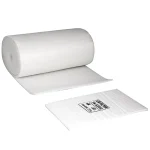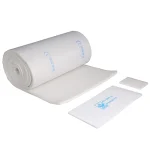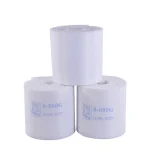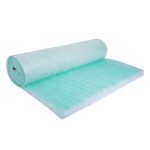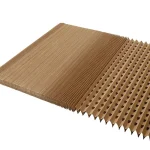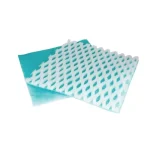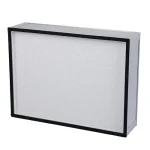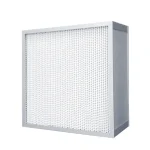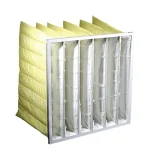Customizing Air Filtration Systems for Specialized Paint Booths
Table of Contents:
Section 1: Understanding Specialized Paint Booths
Section 2: Key Factors in Customizing Air Filtration Systems
Section 3: Benefits of Customized Air Filtration Systems
Section 4: Types of Filters and Their Applications
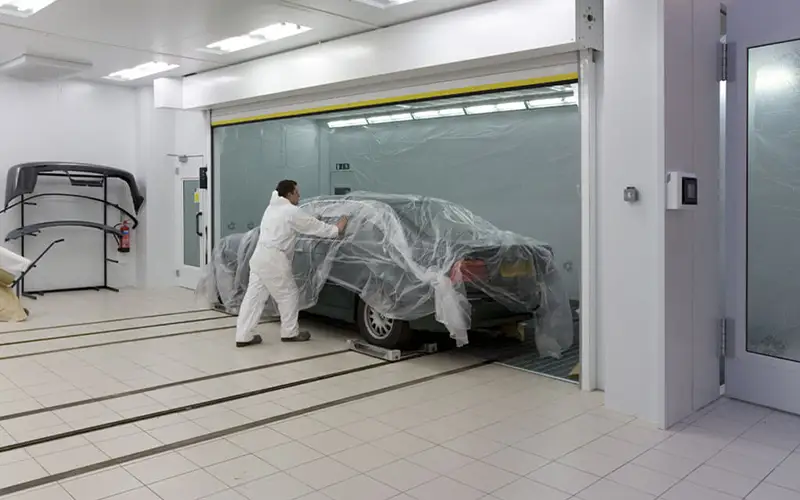
Air filtration in paint booths is crucial for maintaining a clean, safe, and productive environment. Effective air filtration systems ensure that airborne contaminants such as dust, overspray, and volatile organic compounds (VOCs) are removed, preventing them from affecting the quality of the paint job and ensuring a safer workspace for employees.
Customization of air filtration systems is necessary for specialized paint booths due to the unique requirements and challenges they present. Different industries, such as automotive, aerospace, and industrial manufacturing, have specific needs based on the type of paints and coatings used, booth configurations, and desired air quality standards.
Understanding Specialized Paint Booths
Different Types of Specialized Paint Booths
Specialized paint booths cater to various industries, each with specific requirements tailored to their unique painting processes. Automotive paint booths are designed for painting cars and trucks, ensuring a high-quality finish by controlling overspray and particulate contamination.
Aerospace paint booths are used for painting aircraft and must meet stringent air quality standards to handle fine particles and chemical vapors. Industrial paint booths are found in manufacturing plants and must be robust enough to handle a wide range of materials and heavy-duty operations.
Unique Requirements and Challenges of Each Type
Automotive paint booths face the challenge of managing large volumes of paint overspray and ensuring a consistent finish on vehicles. They require high-efficiency filters to capture fine particles and maintain a clean environment. Aerospace paint booths must address the intricate requirements of painting aircraft, including the need for advanced filtration to manage toxic fumes and ensure compliance with strict industry regulations.
Industrial paint booths deal with diverse materials and high levels of contaminants, requiring durable filtration systems capable of handling heavy use and maintaining air quality despite demanding conditions. Each type of booth necessitates customized air filtration solutions to meet these unique challenges and achieve optimal performance.
Key Factors in Customizing Air Filtration Systems
Type of Paint and Materials Used
Different paints and coatings emit various pollutants, influencing the type of air filtration system required. For instance, solvent-based paints release high levels of volatile organic compounds (VOCs), necessitating filters that can effectively absorb and neutralize these gases.
On the other hand, water-based paints may produce more particulates, which require filters designed to capture fine particles. The specific type of paint and materials used in a paint booth play a crucial role in determining the appropriate air filtration system to ensure optimal air quality and safety.
Booth Size and Configuration
The size and layout of the paint booth significantly affect the airflow patterns and the number of filters needed.
Larger booths or those with complex configurations may require multiple filters strategically placed to ensure comprehensive coverage and prevent dead zones where contaminants can accumulate.
Customizing the air filtration system based on the booth’s dimensions and design helps maintain consistent airflow and effective contaminant removal, ensuring a clean and efficient painting environment.
Specific Air Quality Standards and Regulations
Compliance with industry-specific air quality standards and local environmental regulations is essential for safe and legal paint booth operations.
Different industries, such as automotive, aerospace, and industrial manufacturing, have varying air quality requirements and standards that must be met. Customized air filtration systems can be designed to meet or exceed these standards, ensuring that paint booths operate safely and within legal guidelines.
This customization not only helps in maintaining high air quality but also protects businesses from potential fines and regulatory issues.
Benefits of Customized Air Filtration Systems
Improved Air Quality and Safety
Customized air filtration systems are designed to meet specific paint booth needs, effectively removing contaminants like dust, overspray, and volatile organic compounds (VOCs).
This reduction in airborne pollutants creates a safer working environment, minimizing respiratory issues and other health risks for workers.
Enhanced Paint Finish Quality
Cleaner air in a paint booth results in higher quality paint finishes by reducing defects caused by dust and other contaminants.
Customized filtration systems ensure optimal air purity, leading to consistent, superior paint jobs and less need for rework.
Compliance with Environmental and Safety Regulations
Customized air filtration solutions are tailored to meet or exceed stringent air quality standards and regulations.
This ensures that paint booth operations remain compliant, helping businesses avoid fines, legal issues, and potential shutdowns due to non-compliance.
Increased Operational Efficiency
Optimized air filtration systems reduce downtime and maintenance costs by preventing the buildup of contaminants and ensuring smooth operation of equipment.
Efficient filtration systems also lower energy consumption by maintaining optimal airflow, reducing the strain on ventilation and air conditioning units.
Types of Filters and Their Applications
Intake Filters
Intake filters are essential for cleaning the incoming air, preventing contaminants from entering the paint booth. They capture dust, dirt, and other airborne particles, ensuring that the air entering the booth is clean and free from pollutants.
This is crucial for maintaining a pristine painting environment, which helps in achieving high-quality paint finishes. By keeping contaminants out, intake filters play a vital role in reducing defects and ensuring a smooth, professional paint job.
Exhaust Filters
Exhaust filters capture overspray and pollutants before they are released into the environment. They trap paint particles, solvents, and other hazardous materials, preventing them from contaminating the surrounding air and ensuring compliance with environmental regulations.
These filters are crucial for protecting the environment and maintaining a safe workspace, as they reduce the release of harmful substances into the atmosphere. Effective exhaust filtration is essential for meeting legal requirements and protecting both the environment and public health.
HEPA Filters
High-Efficiency Particulate Air (HEPA) filters are highly effective at capturing fine particles and are used in booths requiring high levels of air purity, such as aerospace paint booths. These filters can capture 99.97% of particles as small as 0.3 microns, including dust, pollen, and bacteria.
HEPA filters are critical in applications where even the smallest contaminants can affect the quality of the paint finish. Their high efficiency makes them ideal for environments that demand the utmost cleanliness and air purity.
Conclusion
Customizing air filtration systems for specialized paint booths is essential for achieving superior air quality, compliance with regulations, and enhanced paint finish quality. By investing in tailored solutions, businesses can ensure a safe, efficient, and productive painting environment, ultimately leading to better operational outcomes and customer satisfaction.
HEPA filters are critical in applications where even the smallest contaminants can affect the quality of the paint finish. Their high efficiency makes them ideal for environments that demand the utmost cleanliness and air purity.
